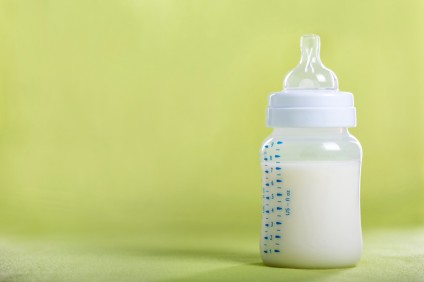Yesterday I wrote about the ways in which the Baby Friendly Hospital Initiative (BFHI) is hurting babies (Help me stop the Baby Friendly Hospital Initiative before more mothers and babies are harmed). It appears that the incidence of severe dehydration, sometimes accompanied by permanent brain damage, is rising as well as the incidence of skull fractures of babies who fall from their mothers’ hospital beds, and infants being accidentally smothered by their mothers who fall asleep while feeding or cuddling them.
I advocated for ending the BFHI on the twin grounds that it is not friendly to babies and it doesn’t work to promote breastfeeding. The BFHI is going to be around for the near future, though. How can mothers protect their babies and themselves from the misguided totalitarian rules of the BFHI that muzzle nurses preventing them from telling you about the options for feeding your baby?
Women who have easy access to formula supplementation in the first few days are MORE likely to breastfeed successfully.
If you want to be successful at breastfeeding, I recommend bringing formula to the hospital.
I recommend it for both practical reasons and philosophical reasons.
The practical reasons include:
- We KNOW that many women won’t have their milk come in for more than two days after birth, but babies may get hungry before then.
- We KNOW that 5-15% don’t make enough breastmilk to fully nourish and infant.
- We KNOW, as even Dr. Alison Stuebe of the Academy of Breastfeeding Medicine acknowledges, that as many as 44% of babies will need formula supplementation in the early days.
- We KNOW that judicious formula supplmentation INCREASES rates of successful breastfeeding.
In other words, women who have easy access to formula supplementation in the first few days are MORE likely to breastfeed successfully, not less. The BFHI explicitly ignores this.
Why?
In my view it’s because the BFHI is designed to be both humiliating and punitive.
- The BFHI mandates refusing to offer supplementation to hungry babies.
- It forces mothers to beg for formula and subject themselves to lectures on the benefits of breastfeeding (as if they are idiots and aren’t already aware).
- It muzzles postpartum nurses from appropriately counseling women about the risks of dehydration and the benefits of supplementation.
- It prohibits soothing hungry infants with pacifiers even though there is no evidence that pacifiers interfere with breastfeeding and a growing body of evidence that they reduce the risks of SIDS (sudden infant death syndrome).
Why is it designed to be humiliating and punitive?
Because the proponents of the BFHI cling to the beloved fiction that women don’t breastfeed or stop breastfeeding because they are too stupid and gullible to resists the marketing of formula manufacturers when the truth is quite different. The truth is that women don’t breastfeed because initiating breastfeeding can be frustrating for both mother and babies, and painful. They stop breastfeeding because continuing may be frustrating, painful, inconvenient and may fail to provide the baby with enough nutrition.
The BHFI folks fear that if mothers see how easy, convenient and satisfying formula is, women will be seduced into using it instead of breastfeeding. So they prattle on about how easy and convenient breastfeeding is when it’s neither. They babble that breastmilk is the perfect food when it isn’t perfect if there is not enough of it. And, of course, they grossly exaggerate the benefits of breastfeeding when the truth is that in countries with clean water the benefits are limited to a few less ear infections and episodes of diarrheal illness across the entire population of babies in the first year.
Women are not selfish fools who must be forced into breastfeeding. Most women want to breastfeed and will make strenuous efforts to do so.
If you are one of those women I recommend that you take both formula and pacifiers to the hospital. Your baby will probably never need the formula, but knowing you have it will be reassuring. If your baby screams incessantly from hunger, you can offer a little formula to settle her and allow her (and you) to get some sleep. Pacifiers can also help in bridging the gap between your baby feeling distressed and your milk coming in.
The practical reason for bringing formula and pacifiers is that they can promote successful breastfeeding, but there’s a philosophical reason, too:
Having easy access to formula and pacifiers puts mothers, not lactation professionals, in charge of both babies and their own bodies. It eliminates the ability of hospital personnel to pressure and humiliate women into fulfilling the hospital agenda and leaves personal decisions to the person actually affected by them, the mother.
Lactation professionals and all healthcare providers should never forget:
HER baby, HER body, HER breasts, HER choice!
If you want to control your own body AND ensure a successful breastfeeding relationship, take formula to the hospital. You probably won’t need it, but if you do, you’ll be very glad you brought it.


